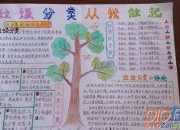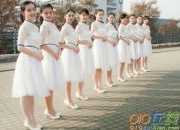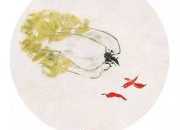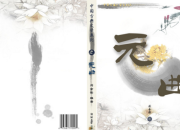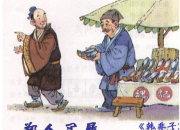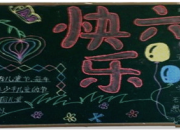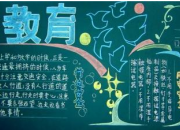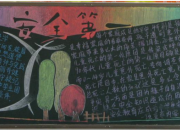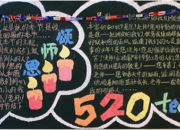初中英语完形填空自测练习题附答案
时间:2021-08-31Have you ever asked yourself why children go to school? You will probably __1__ they go to learn languages, geography, history, science and all __2__ subjects. That is quite __3__, but __4__ do they learn these things?
We send our children to school to __5__ them for their future work and life. Nearly everything they study at school has some practical use __6__ their life, but is that the __7__ reason they go to school?
There is __8__ in educatuon than just learning facts. We go to school above all __9__ how to learn, so that when we have left school we can go on learning. If a man really knows __10__, he will always be successful, because whenever he has to do __11__ he will quickly teach himself how to do it in the best way. The uneducated person, on the other __12__, is __13__ unable to do it, or does it badly, so the purpse of school is not just __14__ languages, geography, science, etc, but to teach pupils the __15__ to learn.
1. A. speak B. say C. talk D. tell
2. A. the B. other C. the other D. other the
3. A. true B. real C. fact D. wrong
4. A. how B. where C. why D. what
5. A. stop B. ask C. ready D. prepare
6. A. at B. in C. on D. with
7. A. best B. only C. just D. first
8. A. many B. much C. more D. most
9. A. learn B. to learn C. learning D. learned
10.A. how to learn B. why to learn C. how does he learn D. why does he learn
11.A. anything new B. something new C. new anything D. new something
12.A. way B. word C. foot D. hand
13.A. both B. either C. neither D. not
14.A. learn B. to learn C. teach D. to teach
15.A. subjects B. reasons C. way D. knowledge
名师点评
本文阐述了我们在学校不仅仅要学好各门功课,更重要的是要学会如何去学习。有了好的学习方法,我们在离开学校时才能去自学更多的知识,解决人生道路上的各个疑难。
答案简析
1.B。强调说话的内容只能用say。
2.C。other subjects指“别的一些功课”,而the other subjects指“别的所有的功课”。根据文意,应选择后者。
3.A。很显然,上文提到的内容也是学习的目的之一,完全正确,故选择true。
4.C。该句起引起下文的作用,而下文主要解释为什么要学习,故选择why。
5.D。prepare sb for sth是固定搭配,意思是“使某人为某事作好准备”。
6.B。in one’s life是一个常用短语,意思是“在某人的一生中”。
7.B。上文提到在学校学习的目的之一是要多学知识,从下文可以得知这并不是唯一的目的,故选only。
8.C。固定搭配more than (doing) sth意思是“不仅仅……”。
9.B。这里应用动词不定式作目的状语,故选to learn。
10.A。宾语从句应用陈述句语序,故排除C、D两项。疑问词与不定式连用可代替从句在句中作宾语,根据句子意思,应选A。
11.B。形容词修饰不定代词应后置,故排除C、D两项。根据句子意思,应选B。
12.D。on the other hand是一个常用短语,意思是“在另一方面”。
13.B。仔细分析句子,不难发现句中含有固定搭配either…or…意思是“要么……要么……”。
14.D。这里应用动词不定式作目的状语,根据句子意思,应选D。
15.C。该句强调了校方不仅仅要授予学生知识,还要教会学生学习的方法。故选way。
初中英语完形填空自测练习题(20)
Crocodiles (鳄鱼) 1 their eggs and leave them under leaves or sand. Baby crocodiles use their teeth 2 their way out of the shells (壳).
Crocodiles only live 3 it is hot. They are found in Australia 4 America. They spend most of 5 time lying around in the rivers. The crocodiles’ long tail 6 when the animal is swimming. It is an excellent weapon(武器). It 7 be used to strike (打击) the 8 . One blow will knock 9 a man or even a big animal at 10 . The crocodile has a hard neck. It cannot turn its 11 from side to side and so it can 12 see in front of itself. The crocodile has its teeth 13 by the crocodile bird. For its food this bird takes the bits in the crocodile’s mouth. This helps the crocodile a lot 14 it cannot move its tongue up and down. 15 its terrible teeth it catches its food. The food may be a fish, an animal, or even a careless man.
A. lay B. lie C. lain D. lying
A. to feel B. to turn C. to break D. to rush
A. when B. while C. where D. if
A. as B. and C. but D. so
A. its B. hot C. their D. cold
A. is used B. for help C. very useful D. be helpful
A. should B. can C. need D. must
A. friend B. enemy C. student D. family
A. soon B. far C. up D. down
A. most B. best C. once D. worst
A. tail B. head C. eyes D. body
A. not only B. still C. even D. only
A. pulled B. cleaned C. taken D. brushed
A. because B. so C. if D. whether
A. Under B. Between C. For D. With
名师点评
这篇文章主要讲述了鳄鱼的`生活习性,你也许会感叹:大自然太神奇了!如果鳄鱼没有长长的尾巴,它拿什么作武器?如果鳄鱼能转动它的舌头,那鳄鱼鸟怎么生存?
答案简析
1. A。lay eggs产卵,下蛋lay-laid-laid。lie躺,位于lie-lay-lain,说谎lie-lied-lied。
2. C。小鳄鱼破壳而出。
3. C。鳄鱼住在热的地方。where引导地点状语。
4. B。
5. C。与前面的They对应。
6. A。被用来。其他的选项有语法错误。
7. B。can 表示一种能力,意为它的尾巴能用来攻击。
8. B。敌人。
9. D。knock down 撞倒。
10. C。at most最多,at the best处于最佳状态,at once立刻,马上。根据意思应为“立刻把一个大的动物击倒”。
11. B。根据上文脖子硬,那当然是头不能转动,而不可能是尾巴,眼睛或身体。
12. D。而头不能转动,就意味着只能看前方的东西。
13. B。have sth. done 让某事被做。Have its teeth cleaned 让鳄鱼鸟给它清洗牙齿。
14. A。根据上下文之间的联系,这里是陈述为什么对它有帮助的原因,因此用because。
15. D。固定搭配,意为“用牙齿”。
初中英语完形填空自测练习题(19)
During the war, an English pilot (飞行员) was hurt. But he was 1 by a group of nuns (修女). He had been very 2 and lost his sense. When he came to himself he was 3 to find a woman beside him. It was Sister Mary. She said to him, “This is a woman hospital. We will 4 you here as long as 5 , but you will have to follow our advice.”
The pilot 6 to make himself up for a nurse. He could not talk with the nurses or the nuns. He had to stay in a small room as 7 as possible. He was asked to shave (刮胡子) every day, wearing a beautiful 8 , and the nurse’s uniforms (制服) . It was a very difficult time, however he didn’t feel very 9 especially when one of the nursing girls caught his eyes. She was very quiet, and ran away whenever she saw him looking at 10 . The pilot found 11 fall in love with her.
One day he found the nurse working in the kitchen 12 . He went over to her and said, “Please don’t do that. I love you so much.” He started to put his arms 13 the nurse, and then drew back 14 . He found that the nurse was actually 15 pilot saved by the nuns just like himself.
A. caught B. saved C. killed D. helped
A. lucky B. hungry C. strong D. weak
A. angry B. sorry C. surprised D. worried
A. hide B. put C. take D. stop
A. possible B. able C. possibly D. need
A. decided B. liked C. agreed D. asked
A. soon B. much C. early D. late
A. clothes B. cap C. shoes D. sweater
A. lonely B. alone C. hungry D. hungrily
A. him B. me C. her D. she
A. her B. him C. herself D. himself
A. lonely B. loudly C. happily D. alone
A. behind B. in front of C. around D. on
A. happily B. sadly C. in surprise D. in danger
A. another B. the other C. others D. the others
